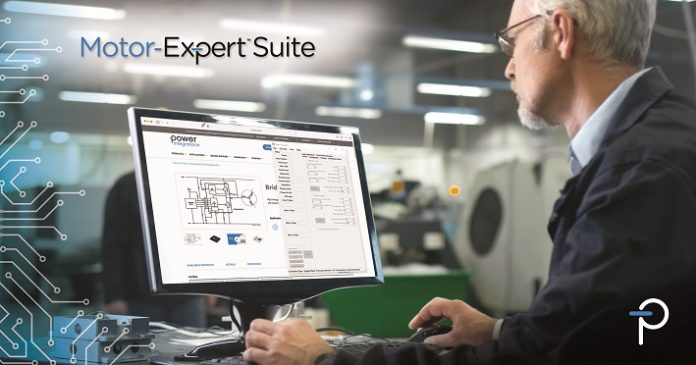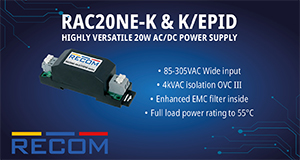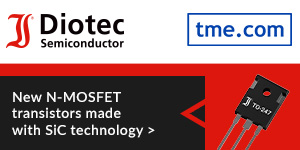Power Integrations, the leader in high-voltage integrated circuits (ICs) for energy-efficient power conversion, today unveiled new control software for three-phase BLDC motor drives. Combined with Power Integrations’ BridgeSwitch integrated half-bridge motor driver and easy-to-use Motor- Expert configuration and diagnostics tool, this complete hardware-software solution enables 98.2 per cent efficiency, reduces board space by more than 70 per cent and requires just three components for current feedback circuitry, compared to 30 components in a discrete solution. The solution is ideal for residential and commercial appliances with three-phase motors, such as air conditioner fans, high-speed hair dryers, refrigerator compressors, range hood fans and water pumps.
“Traditional three-shunt field-oriented control (FOC) solutions require expensive and bulky operational amplifiers (op-amps) and matching circuity for motor-current signal conditioning,” states Cristian Ionescu-Catrina, senior product marketing manager for Power Integrations. “Our BridgeSwitch integrated half-bridge ICs provide lossless current feedback for the positive half cycle, and our three-phase FOC software reconstructs the negative half-cycle current information from data present in the other phase current signals. This eliminates the need for costly and inefficient external current sense resistors, op-amps and matching circuitry and the associated complexity.”
Power Integrations’ new software adds three-phase FOC to the existing library of single-phase code. It allows real-time adjustment of motor speed and torque via the Motor-Expert graphical user interface (GUI). The code runs on any Arm Cortex-M0 at 48 MHz and does not require a hardware accelerator block. It can also be ported to another equivalent MCUs. The current modeling algorithm is robust and reliable and has passed extensive static and dynamic test conditions, including low latency response to real-time events. The high degree of current accuracy ensures low jitter operation. The new code is MISRA C-compliant (Motor Industry Software Reliability Association), portable, modular and allows the user to modify any of the software layers.
How Three-Phase Motor Control Works with BridgeSwitch ICs
Power Integrations’ BridgeSwitch ICs provide a motor current output signal that maps the current passing through the low-side FREDFET. An internal sense-FET provides lossless current sensing. The sense circuit cannot provide current information when the anti-parallel body diode is conducting during commutation. Built-in gain amplification allows direct connection of the current phase signal to the microcontroller ADC input. The local sense circuit provides an accurate analog of current with a high signal-to-noise ratio and a correspondingly high degree of accuracy. The new software includes a reconstruction algorithm that uses the phase-shifted trigonometric relationship between current signals of all three phases to accurately deduce negative phase-current information.
Updated Motor-Expert Design Tool
Motor-Expert 2.0 is Power Integrations’ easy-to-use motor control configuration and diagnostics tool for the BridgeSwitch IC family. It provides a GUI allowing easy manipulation of input parameters, as well as a terminal emulator for interacting with the motor controller in serial mode. In addition, a motion scope feature displays linear graphs of important controller variables that can be viewed in real-time.
Ionescu-Catrina adds: “Precise control, tuning and optimization can take months of software development. Power Integrations created Motor-Expert 2.0 with the design engineer’s needs in mind. The new tool reduces the cost and complexity of BLDC drive design and works with the newly released three-phase motor control software and reference design DER-964 to offer a complete tool for motor drive development.”
Motor and application tuning is performed through the Motor-Expert 2.0 GUI with control loop coefficients being updated in real-time without having to recompile code. The interface also enables users to visualize system operation, displaying the status of data, including current, speed, status, current error, and speed error. A diagnostics field within the software interface provides insight into inverter and motor operation.









